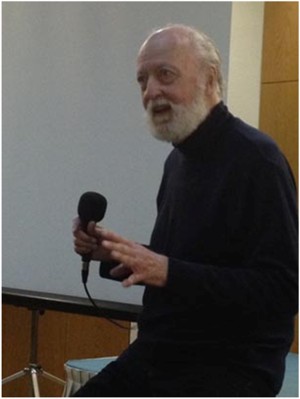With Felicia and Edmundo in Israel

Edmundo Desnoes
I knew who they were the minute I saw them at JFK Airport. He was tall, white-haired and white-bearded, elegant in a black turtleneck, and she was slender and sleek and had a well-traveled air about her. They were no longer young but you could never call them old. He stood too straight and she looked out at the world with too much curiosity. Later I learned they were both 82.
“Felicia? Edmundo?” I asked.
She turned to me with a smile. “Yes, it’s us.”
Felicia Rosshandler is the author of Passing Through Havana, an autobiographical novel about her German-Jewish family’s escape to Cuba at the time of the Holocaust and her unceasing search for home.
Edmundo Desnoes is the author of the novella, Memorias inconsolables(Inconsolable Memories), which later inspired the screenplay for the 1967 film, Memorias del subdesarrollo (Memories of Underdevelopment), directed by Tomás Gutierrez Alea, one of Cuba’s greatest filmmakers. Read more



